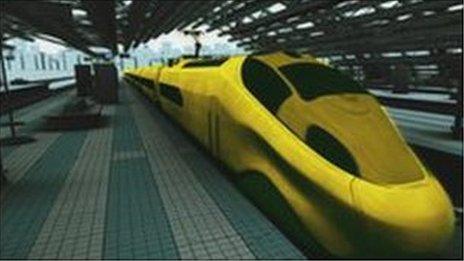HS2: 'Timetable needed' for high-speed rail to reach Scotland
- Published
High-speed rail is set to extend between the north of England and London by the 2030s
A "concrete timetable" is needed for extending the HS2 high-speed rail network to Edinburgh and Glasgow, the Scottish government has urged.
It has called on the UK Department for Transport to spell out when high-speed rail would reach Scotland.
Details of the next phase of the £32bn HS2 have been unveiled, external, along two branches to Manchester and Leeds.
The chancellor has called HS2 "an engine for growth" but phase one plans have already faced opposition.
Phase one will provide a link from London to Birmingham, with construction on the Y-shaped extension estimated to be completed by 2032-33.
Critics argue that HS2's predicted economic benefits have been overestimated by the government, and suggest swathes of picturesque countryside will be blighted by the railway.
There is some support for HS2 in Scotland - if it connects to Edinburgh and Glasgow.
UK 'assurances'
The Department for Transport said that HS2 phase two would virtually halve journey times between Birmingham and Manchester - to 41 minutes - and between London and Manchester from two hours and eight minutes to one hour and eight minutes.
UK Transport Secretary Patrick McLoughlin said: "It's not just about journey times, it is also about capacity.
George Osborne: "I think it is the engine for growth in the north and the midlands"
"We are finding the railways are overcrowded. We've seen massive growth in rail passenger numbers, so this is taking HS2 so it serves the north."
The Scottish government is drawing up its own plans for a high speed line between Edinburgh and Glasgow, which could be completed by 2024.
Scottish Transport Minister Keith Brown said he had also received "assurances" that Scotland was very much a part of the UK government's plans for HS2.
He added: "The full benefits of this project can only be realised if Scotland is involved and it looks like Westminster has finally taken note.
"In particular, I was pleased to note that the Department for Transport's command paper recognises that Edinburgh and Glasgow currently have some of the most heavily used sections of the rail network in the UK and that bringing high speed rail here would help to ease congestion on the network, enhance the effectiveness of the railways and improve the passenger experience, as well as benefitting both the north and south and increasing modal shift from air to rail thereby helping improve the environment."
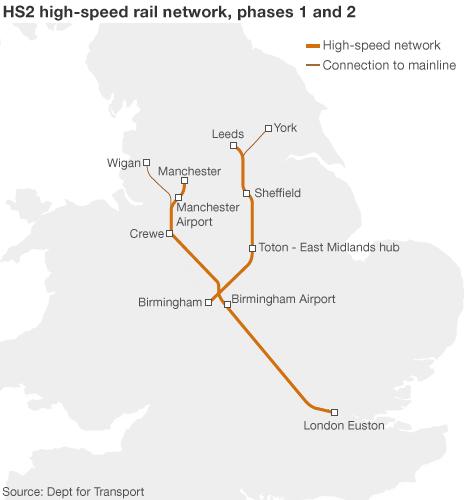
Shadow Scottish Secretary Margaret Curran said the phase two route ''doesn't offer enough'' for Scotland.
She said: "Both the UK and Scottish governments now need to get to grips with this to make sure a plan is in place to take high speed rail all the way to Scotland."
Edinburgh City Council called for an early announcement on the next phase "north of the Border", while Glasgow City Council said it was essential construction "begins at both ends of the country and meets in the middle".
'Fundamentally flawed'
Liz Cameron, chief executive of Scottish Chambers of Commerce, warned: "By 2033, Manchester to London journey times could be reduced by 47%, whereas Glasgow-London times would only fall by around 12%, meaning that the benefits of high speed rail in the absence of a true UK network disproportionately favour English cities."
More than 70 groups oppose HS2. StopHS2 argues the project is "fundamentally flawed", saying the majority of journeys will be to London so England's North and Midlands would lose out rather than benefit, and that projections did not take into account competition from conventional rail.
- Published28 January 2013
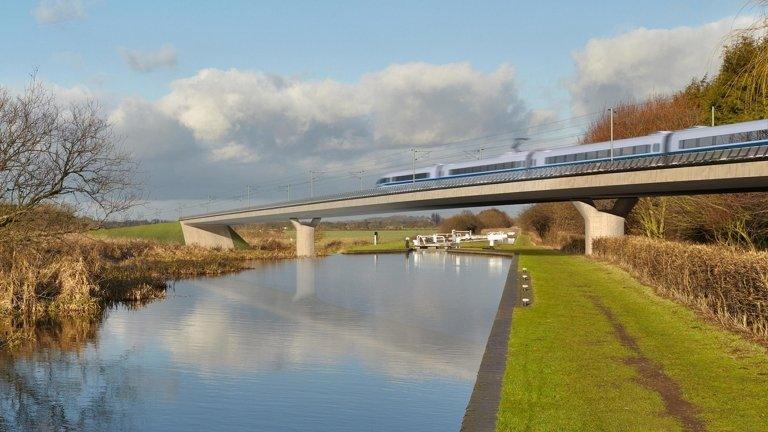
- Published28 January 2013
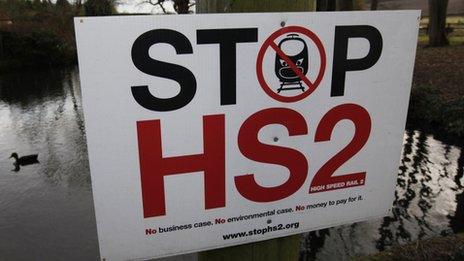
- Published6 October 2023
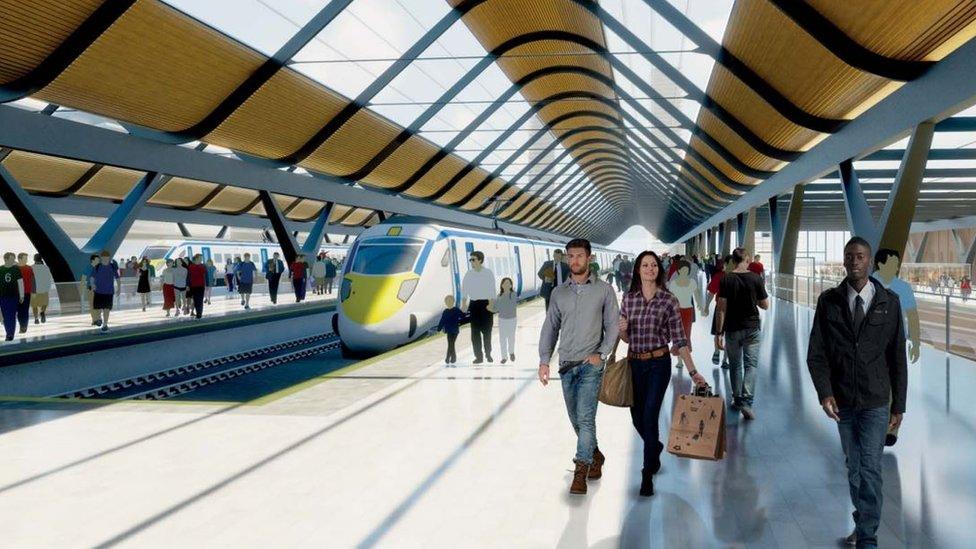
- Published12 November 2012
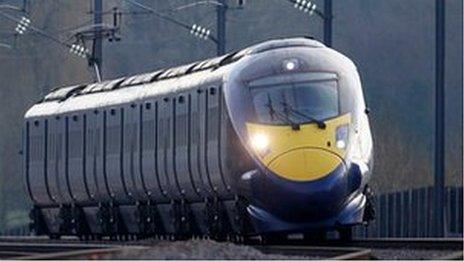
- Published8 November 2011
